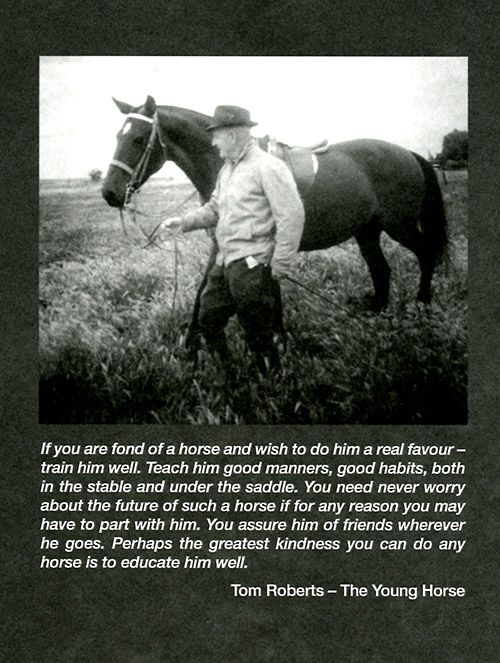What is a “broke” horse?
To me, a broke horse is one that leads quietly in almost any environment, that respects the tug of a lead or longe line, that will tie or cross tie quietly, that is good for the farrier without drugs, that will load or self load easily and calmly and stand on the trailer quietly and wait calmly for unloading, that will longe quietly and obediently at all three gaits on command, that stands still to be mounted, that will trail ride with quiet confidence alone or with a friend, that will do its daily job without tranquillizing drugs or excessive force and one that is generally safe and fun to have around. I know it takes time (years) and good knowledge to produce this, but are we successfully doing this in the H/J disciplines in the US on a consistent basis? Or for that matter across all the disciplines? To me, this is the foundation for all else. In my opinion, any and every amateur owner or rider should demand and/or understand how to produce this animal. We should be teaching these things to up and coming juniors. Of course every animal is different and so the steps and time taken to reach the end result may vary but the foundation developed by this approach is invaluable. Are we doing our horses a disservice by not giving them the proper foundations? Or are my impressions mistaken and this is being done on a regular and consistent basis?




 Yes, yes, I get that many of you consider lunging an essential skill. My horse, in fact, does lunge “quietly and obediently at all three gaits on command” because I think it’s an essential skill in my horse life.
Yes, yes, I get that many of you consider lunging an essential skill. My horse, in fact, does lunge “quietly and obediently at all three gaits on command” because I think it’s an essential skill in my horse life.